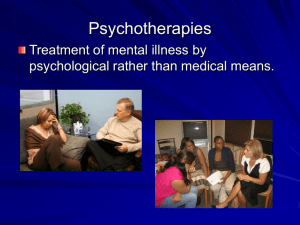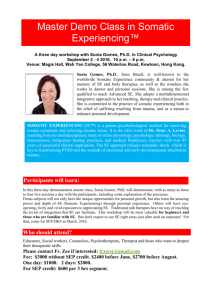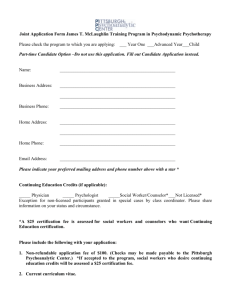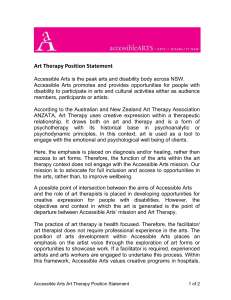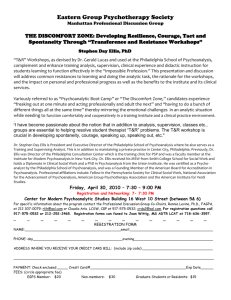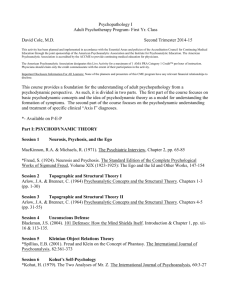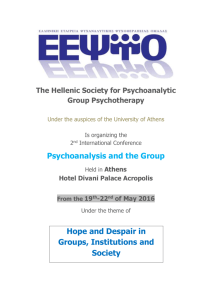16-132a Somatic Experiencing: Expanding the Psychodynamic Dialogue – 6 Hour Seminar
advertisement
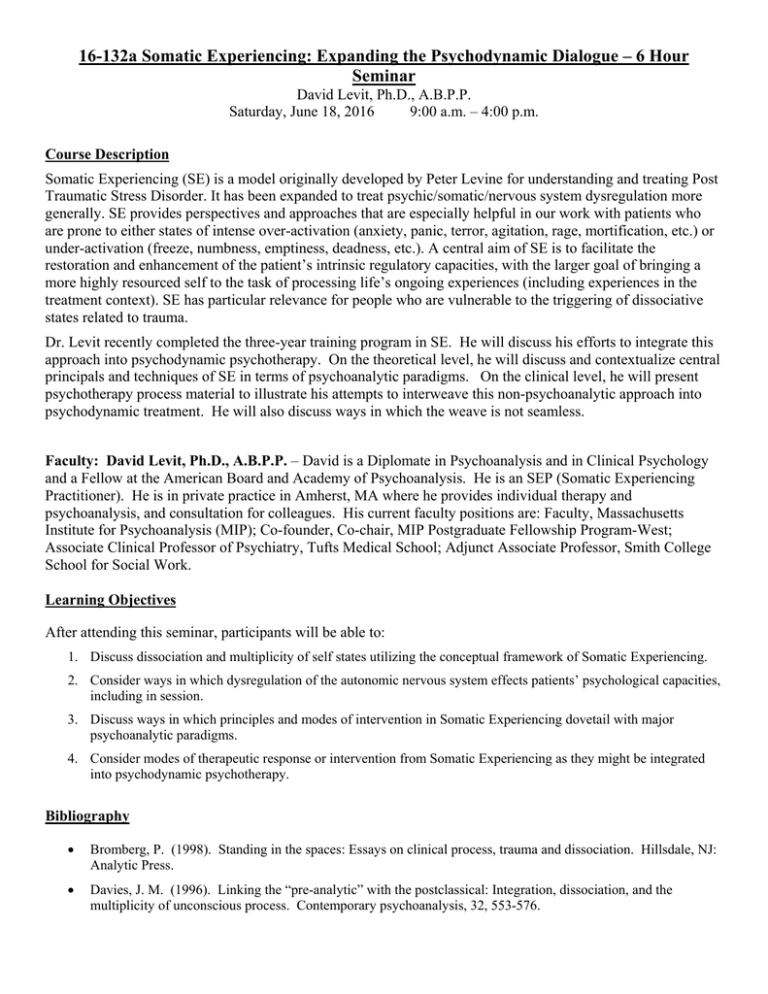
16-132a Somatic Experiencing: Expanding the Psychodynamic Dialogue – 6 Hour Seminar David Levit, Ph.D., A.B.P.P. Saturday, June 18, 2016 9:00 a.m. – 4:00 p.m. Course Description Somatic Experiencing (SE) is a model originally developed by Peter Levine for understanding and treating Post Traumatic Stress Disorder. It has been expanded to treat psychic/somatic/nervous system dysregulation more generally. SE provides perspectives and approaches that are especially helpful in our work with patients who are prone to either states of intense over-activation (anxiety, panic, terror, agitation, rage, mortification, etc.) or under-activation (freeze, numbness, emptiness, deadness, etc.). A central aim of SE is to facilitate the restoration and enhancement of the patient’s intrinsic regulatory capacities, with the larger goal of bringing a more highly resourced self to the task of processing life’s ongoing experiences (including experiences in the treatment context). SE has particular relevance for people who are vulnerable to the triggering of dissociative states related to trauma. Dr. Levit recently completed the three-year training program in SE. He will discuss his efforts to integrate this approach into psychodynamic psychotherapy. On the theoretical level, he will discuss and contextualize central principals and techniques of SE in terms of psychoanalytic paradigms. On the clinical level, he will present psychotherapy process material to illustrate his attempts to interweave this non-psychoanalytic approach into psychodynamic treatment. He will also discuss ways in which the weave is not seamless. Faculty: David Levit, Ph.D., A.B.P.P. – David is a Diplomate in Psychoanalysis and in Clinical Psychology and a Fellow at the American Board and Academy of Psychoanalysis. He is an SEP (Somatic Experiencing Practitioner). He is in private practice in Amherst, MA where he provides individual therapy and psychoanalysis, and consultation for colleagues. His current faculty positions are: Faculty, Massachusetts Institute for Psychoanalysis (MIP); Co-founder, Co-chair, MIP Postgraduate Fellowship Program-West; Associate Clinical Professor of Psychiatry, Tufts Medical School; Adjunct Associate Professor, Smith College School for Social Work. Learning Objectives After attending this seminar, participants will be able to: 1. Discuss dissociation and multiplicity of self states utilizing the conceptual framework of Somatic Experiencing. 2. Consider ways in which dysregulation of the autonomic nervous system effects patients’ psychological capacities, including in session. 3. Discuss ways in which principles and modes of intervention in Somatic Experiencing dovetail with major psychoanalytic paradigms. 4. Consider modes of therapeutic response or intervention from Somatic Experiencing as they might be integrated into psychodynamic psychotherapy. Bibliography Bromberg, P. (1998). Standing in the spaces: Essays on clinical process, trauma and dissociation. Hillsdale, NJ: Analytic Press. Davies, J. M. (1996). Linking the “pre-analytic” with the postclassical: Integration, dissociation, and the multiplicity of unconscious process. Contemporary psychoanalysis, 32, 553-576. Levine, P. A. (2010). In an unspoken voice: How the body releases trauma and restores goodness. Berkeley, CA.: North Atlantic Books. Levine, P. A. and Frederick, A. (1997). Waking the tiger: Healing trauma. Berkeley, CA: North Atlantic Books. van der Kolk, B. A. (2002). Posttraumatic therapy in the age of neuroscience Psychoanalytic Dialogues, 12 (3), pp. 381-392).

